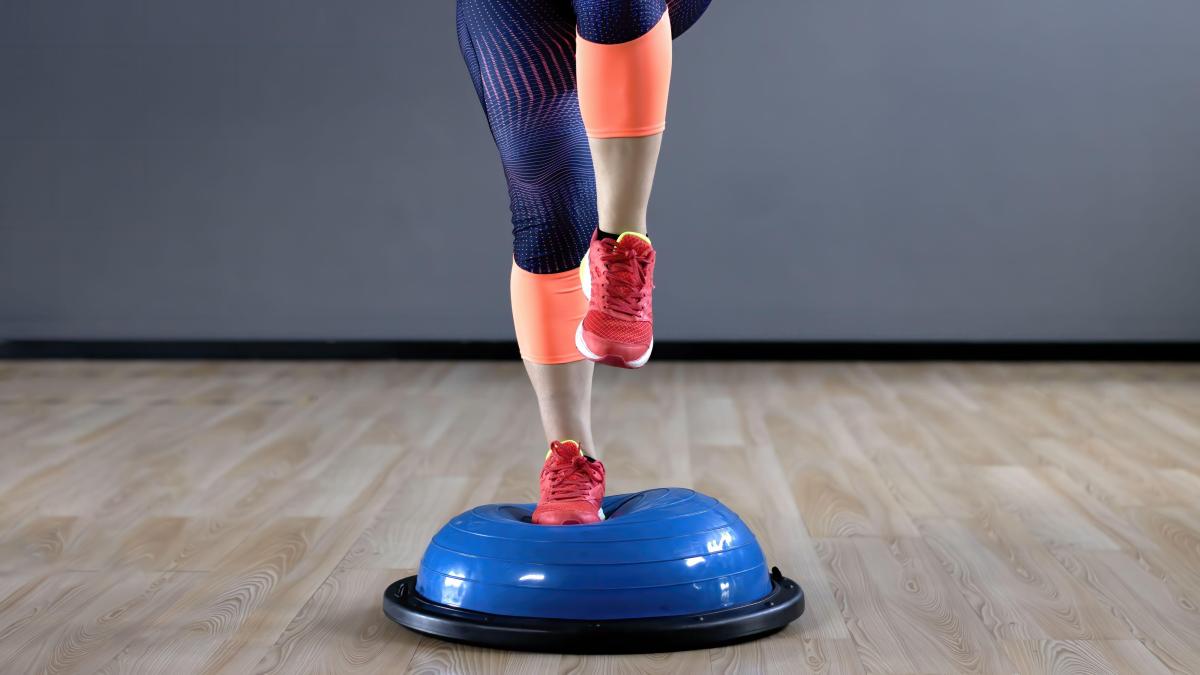We work out to protect our bodies, but there is also evidence that getting your sweat on keeps your mind limber as you age. “It’s well established that exercise is beneficial for the brain,” says Dr Paulina Kloskowska, a physiotherapist at Marylebone Health Group. This is how to work out your mind and your body.
1. Run a marathon to boost your memory
Kloskowska points to a 2021 study of 22 endurance runners and 20 non-runners that used MRI imaging to assess the brains of both groups. The study found that endurance running was associated with greater grey matter volume in the hippocampus, which is the part of the brain involved in memory and learning. “These findings suggest that endurance activities could be a potential way to improve your brain function and support cognitive health,” she says.
• High cholesterol linked to dementia for the first time
2. Stand on one leg for spatial awareness
Spatial awareness is the ability to understand the relationship between our movements and the objects around us (ie to walk past a table without banging into it). It can decline with age but a study in the journal Scientific Reports found that those who completed 50 minutes of balance training over 12 weeks “saw significant improvements in their memory and spatial cognition”. This was versus a control group that spent the time relaxing.
In the gym, incorporate a Bosu ball — a halved exercise ball with a flat base — into your workouts. Balancing on it while you perform moves such as forward lunges or squats will mean your body has to work harder to remain upright. At home, try standing on one leg for one minute. Too easy? “See if you can do it with your eyes closed,” says Harry Cox, the founder of ClubQ health club.
• Exercise smarter! It will increase your brainpower
3. Join a HIIT class to stay sharp
High-intensity interval training, or HIIT, usually involves a circuit of heart-pounding exercises with minimal rest between each move. It’s gruelling but may help to keep your brain young: a 2022 report found that HIIT significantly increases brain-derived neurotrophic factor (BDNF) levels.
“BDNF is a crucial protein involved in cognition, neuroplasticity and neural connectivity,” Kloskowska says. “It plays a vital role in preventing neurodegenerative diseases.”
On the other hand, decreased BDNF levels are specifically associated with Alzheimer’s patients, according to a 2022 study published in the journal Translational Neurodegeneration.
• How a two-minute walk can keep your brain on its toes
4. Lift weights to stay young
“The overall function and structure of our brains tend to deteriorate with age,” Kloskowska says, “but there’s increasing evidence to show that weight training can help to slow down this decline in older adults.” It may even be more effective than other types of exercise in preserving or enhancing cognitive function.
If you’re new to weights, you could start by investing in some light dumbbells to use while watching television in the evening, and work up to hitting the gym.
